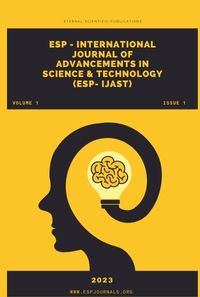ESP International Journal of Advancements in Science & Technology [ESP-IJAST]
Citation :
Venkata Sathya Kumar Koppisetti, 2024. "Meta Learning: Harnessing AI to Optimize Machine Learning Models" ESP International Journal of Advancements in Science & Technology (ESP-IJAST) Volume 2, Issue 2: 27-36.
Abstract :
Meta learning, which is a relatively new branch of AI, is directed toward increasing the productivity and efficacy of machine learning models based on previous knowledge and experience. The paper will, therefore, unfold a brief background on Meta learning to understand its core aspects and utility in enhancing the performance of the ML model—Meta features, Meta learners, and Meta datasets. To provide context on how Meta learning can be applied in ML, we conduct a brief literature review on how it solves typical issues faced in ML like over fitting, lack of data, and domain transfer. This paper explores how Meta learning can pave the way in enhancing the most emerging machine learning frameworks, such as deep learning, reinforcement learning, and hyperparameter optimization, especially in healthcare, finance, and natural language processing. In this way, we will tackle Meta learning both in terms of its state of the art and the direction it is to take in the context of aiding AI systems in model selection.
References :
[1] Meta-Learning in Machine Learning, Geeksforgeeks. https://www.geeksforgeeks.org/meta-learning-in-machine-learning/
[2] Data collection and preprocessing techniques, Qualcomm, Developer Network. https://developer.qualcomm.com/software/qualcomm-neural-processing-sdk/learning-resources/ai-ml-android-neural-processing/data-collection-pre-processing
[3] Venkata Sathya Kumar Koppisetti, 2024. "The Future of Remote Collaboration: Leveraging AR and VR for Teamwork" ESP International Journal of Advancements in Computational Technology (ESP-IJACT) Volume 2, Issue 1: 56-65.
[4] Kushal Walia, 2024. “Accelerating AI and Machine Learning in the Cloud: The Role of Semiconductor Technologies” ESP International Journal of Advancements in Computational Technology (ESP-IJACT) Volume 2, Issue 2: 34-41.
[5] Venkata Sathya Kumar Koppisetti, 2024. "The Role of Explainable AI in Building Trustworthy Machine Learning Systems" ESP International Journal of Advancements in Science & Technology (ESP-IJAST) Volume 2, Issue 2: 16-21.
[6] "Redefining Security Boundaries: The Emergence of GIF-Based CAPTCHAs in Countering AI-Driven Threats", International Journal of Emerging Technologies and Innovative Research (www.jetir.org), ISSN:2349-5162, Vol.10, Issue 12, page no.d887-d890, December-2023, Available: http://www.jetir.org/papers/JETIR2312397.pdf
[7] Venkata Sathya Kumar Koppisetti, 2024. "Machine Learning at Scale: Powering Insights and Innovations" ESP International Journal of Advancements in Computational Technology (ESP-IJACT) Volume 2, Issue 2: 56-61.
[8] Sean Benhur, Guide to Meta Learning, builtin, 2023. https://builtin.com/machine-learning/meta-learning
[9] Sandeep Kumar and Manoj Kumar Vandanapu, Natural Language Generation and Artificial Intelligence in Financial Reporting: Transforming Financial Data into Strategic Insights for Executive Leadership, International Journal of Computer Engineering and Technology (IJCET), 15(2), 2024, pp.45-55
[10] Ganesh, A. ., & Crnkovich, M., (2023). Artificial Intelligence in Healthcare: A Way towards Innovating Healthcare Devices. Journal of Coastal Life Medicine, 11(1), 1008–1023. Retrieved from https://jclmm.com/index.php/journal/article/view/467
[11] Deval Parikh, Sarangkumar Radadia, Raghavendra Kamarthi Eranna, 2024. Privacy-Preserving Machine Learning Techniques, Challenges and Research Directions, Volume 11, Issue 3, pp. 499-509.
Keywords :
Meta learning, Machine Learning, Artificial Intelligence, Neural Networks, Hyperparameter Tuning, Hyperparameter Optimization, Deep Learning, Reinforcement Learning.


 : 10.56472/25839233/IJAST-V2I2P106
: 10.56472/25839233/IJAST-V2I2P106